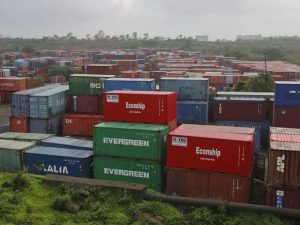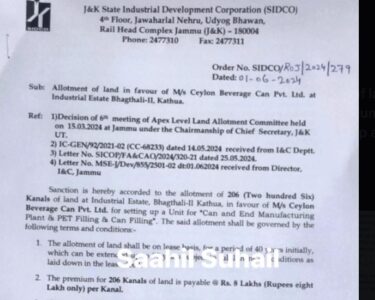Houthi attacks in the Red Sea disrupt shipping, pushing up consumer goods prices in Europe and
Sri Lankan exporters face soaring freight rates as ships reroute around Africa. Increased sailing times, container shortages, and higher costs threaten businesses.
A new U.S. airstrike targeted Houthi-controlled areas in Yemen as tensions escalate in the Red Sea. Meanwhile, disruptions caused by Houthi attacks are significantly impacting global trade, pushing up prices of consumer goods in Europe and creating logistical headaches for Sri Lankan exporters.
DP World, a port and freight operator, warns that European consumers will bear the brunt of rising shipping costs due to disruptions in the Red Sea, a crucial trade route. This comes as a Greek-owned vessel was struck by a missile, highlighting the ongoing security threat.
In Sri Lanka, exporters are grappling with skyrocketing freight rates on westward routes. Industry experts predict these cost increases will eventually impact eastward routes as well, as ships and containers are forced to take longer detours around Africa to avoid Houthi attacks.
The longer sailing times, exceeding twelve days in some cases due to bypassing the Suez Canal, are causing significant delays and adding to the strain on already tight container availability. Additionally, freight rates, while still lower than pandemic peaks, have jumped noticeably, particularly on European routes where costs have doubled in some instances.
The impact is especially evident in the apparel industry, with tight deadlines for summer deliveries forcing exporters to combine shipments and consider airfreight as a last resort.
While Colombo Port experiences a surge in transhipment volumes from ships rerouting around Africa, the overall picture remains bleak for Sri Lankan exporters and European consumers caught in the crossfire of these disruptions.








